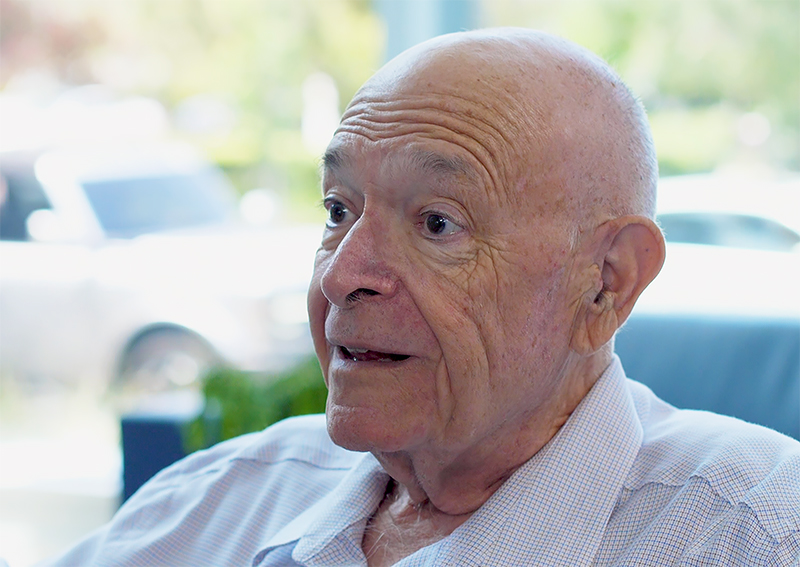
A Triumph in Modern Medicine: Histotripsy at Saint John’s Health Center
Six years ago, Thomas Zisfain’s life took an unexpected turn when he discovered he had kidney cancer that had spread to his stomach and kidneys. After undergoing two consecutive surgeries on the same day, performed by the skilled hands of Dr. Anton Bilchik and Dr. Jennifer Linehan, Thomas emerged with a clean bill of health, needing only regular yearly check-ups.
Fast forward to May 2024, during one of these routine check-ups with Dr. Bilchik, a CAT scan revealed a GIST tumor lurking in the lining of Thomas’ abdomen. Dr. Bilchik swiftly and expertly removed this tumor. Gastrointestinal stromal tumors (GISTs) are a formidable type of cancer originating in the digestive system, most commonly in the stomach and small intestine. These tumors develop from specialized nerve cells in the walls of the digestive organs, which play a crucial role in moving food through the digestive tract.
Kidney cancer is notorious for its ability to return to other parts of the body at any time. Despite feeling great and showing no symptoms of tumor growth in his abdomen, Thomas wouldn’t have known about the cancer growth without his diligent check-up exams. Kidney cancer is one of those insidious diseases that demand yearly examination.
“My care has been absolutely excellent here at Saint John’s.”
– Thomas Zisfain
Six months after his surgery with Dr. Bilchik, another CAT scan revealed that kidney cancer had spread to Thomas’ liver, presenting him with 15 lesions. Remarkably, Thomas still felt fine. With no feasible way to remove all the tumors and spare his liver, he began chemotherapy to reduce the tumors’ size and slow the cancer’s spread. Meanwhile, histotripsy was being commissioned at Saint John’s Health Center for the removal of liver tumors. The timing of this approval has significantly improved Thomas’ quality of life.
Why Histotripsy for liver tumors?
- Histotripsy offers patients a non-surgical, non-invasive option to tackle challenging liver tumors.
- Histotripsy utilizes ultrasound waves to eradicate cancer cells without harming surrounding, healthy tissue.
- Thomas now has eight tumors left on his liver versus 15.
- With the combination treatment of histotripsy and chemotherapy, Thomas hopes to remove all remaining tumors.
- To learn more about this groundbreaking procedure, watch Dr. Jennifer Linehan discuss it here.
“I really hadn’t felt any kind of discomfort or pain from the procedure at all.”
– Thomas Zisfain
Thomas explains how histotripsy was used to treat metastatic kidney cancer that spread to his liver.
Thomas explains the effects of histotripsy in Saint John’s Cancer Institute.
For Thomas, the key to his successful journey has been continual follow-up scans for his prior cancer diagnosis, combined with exceptional care and innovative treatment options.
Watch Dr. David Tran, Thomas’ interventional radiologist, explain how his procedure transpired.
Understanding Metastatic Kidney Cancer
Metastatic kidney cancer, also known as stage IV kidney cancer, occurs when cancer that originated in the kidney spreads to other parts of the body. When it spreads beyond the kidney, this type of cancer is often referred to as renal cell carcinoma. It commonly spreads to the lungs, bones, liver, brain, and adrenal glands.
Upcoming Events for Histotripsy at Saint John’s Hospital
On Friday, May 16th, 2025, from 8:00 AM to noon, HistoSonics, the developer of the histotripsy machine, will be on-site at the Saint John’s Health Center to demonstrate how ultrasound waves are used to treat liver tumors.
Click here for directions to Saint John’s Health Center at 2121 Santa Monica Blvd, Santa Monica, California.
Visitors are required to check in at the front desk.
Thomas’ Care Team, a Multidisciplinary Approach
- Dr. Jennifer Linehan is an associate professor of surgical oncology who specializes in urologic diseases.
- Dr. Anton Bilchik is a professor of surgical oncology who specializes in gastrointestinal and hepatobiliary diseases.
- Dr. David Tran is an interventional radiologist.
By optimizing treatment plans to better suit a patient’s individual needs and biology, we achieve better outcomes. Our specialists come together in tumor boards to discuss individual cases weekly.
Learn more about histotripsy treatment for liver tumors.
Results From Histotripsy of Thomas
As of May 2025, and according to David Tran, MD, “the two masses we treated are gone, which is fantastic.” This treatment should be able to treat the rest of Thomas’ tumors without resecting them.



